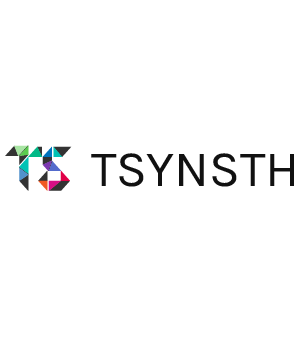Review Phase 回顾阶段 3: System
2016年1月11日-2016年2月4日期间,匠人营国设计教育中心联合系联设计国际团队共同举办的参数化WORKSHOP于北京林业大学召开。
[break]
The first half of Phase 3 of our 2016 winter parametric workshop, ‘System’, was preceded by the studio session: Variations of Applied Systems.
A theoretical and methodological investigation of contemporary digital design with use of various system under the GH environment. A system may be defined as: “a set of components to shape a whole” and can be found in various fields of matter and organization ranging from nature to culture and society, among others. We explored a basic, mechanism, algorithm, and finally prototype of selected three systems, stochastic, field, and fractal. [br]
将着重讲解理当代数位化设计的理论发展尤其是在gh中不同系统的运用。系统一般是一套组件用以塑造一个整体,从自然到文化及社会等物质和组织多个领域中找到。我们探究了基本原理,机制,算法,并选定最终设计原型的三种系统如随机,场和分形。
[br]

Tutor主讲
Chie Fuyuki 冬木千枝:
Workshop Director / Principal Tutor; See her bio.[break]

Charles Kwan:
Guest Tutor
Co-founder and Designer, Half & Half Studio, M.Arch. Pratt Institute, B. Arch. Sci. Ryerson University; Previous Work Experiences: Zaha Hadid Architects, SYSTEMarchitects, SUBdV[br]
Half & Half事务所联合创办人。Charles曾工作于扎哈哈迪德建筑师事务所,SYSTEMarchitects建筑师事务所以及SUBdV
Trushit Vyas:
Guest Tutor
Associate Architect, Zhu Pei; M.S Arch, Pratt Institute[br]
普瑞特艺术学院建筑学硕士、朱锫建筑合伙建筑师

Assistant助教
Lichao Qin 覃立超:
Associate Tutor; See his bio.
Mengyao Zhang张梦瑶:
Associate Tutor
(BIAD) Researcher, Tuning Synesthesia; Show / Set Designer, Thinkwell Asia; M.Arch Politecnico di Milano; B.Arch Tsinghua University[br]
系联设计研究人员、米兰理工大学硕士、清华大学建筑学学士、Thinkwell 布景设计师、曾就职于北曾就职于北市京建筑设计研究院(BIAD)

Julio Lemena:
Designer and Web Developer, Tuning Synesthesia; BJTU Software Engineering[br]
系联设计网站开发设计师、北京交通大学软件工程学生
Devina Godjali:
Designer and Web Front End Developer, Tuning Synesthesia; B.SE. BJTU[br]
系联设计网络前端开发设计师、北京交通大学软件工程学士
Reza Santoso:
Designer and Web Developer, Tuning Synesthesia; BJTU Software Engineering[br]
系联设计网站开发设计师、北京交通大学软件工程学生

[break]
Student Work学生作品
[break]
p3s7 Stochastic Rectangle Map
Sijia Liu 刘思佳





p3s7 Stochastic Morph
Jinyu Shen 沈劲余





Ruoyi Yang 杨若漪
Wangting Liu 刘宛亭

p3s8 Field
Yuwei Wang王雨薇


Linyi Lyu 吕林忆
Lianna Li 李连娜

Zhongyao Yu 虞中尧
Junjian Wu吴俊健




p3s9 Fractal
Yuwei Wang 王雨薇
Lianna Li 李连娜



p3s10 Maya Growth Model [br]
Yifei Li 李逸飞
Tianyue Cheng 程天玥

Yiwen Li 李仪文
Lianna Li 李连娜

Phase Details阶段详情
The three systems (stochastic, field, and fractal) were all taught using a core research structure setting which has been developed carefully at Tuning Synesthesia: basic, mechanism, codes, patterns, prototype, and application.[br]
学习三个系统,随机、场与分形,并讲述由系联团队研究的核心结构设置:基本、机制、代码、纹理、原型和应用。
Lecture 06 “Synesthetic Design: System and Algorithmic Mind”
Phase 3 was initiated on the 26th of January; at which time, the regular and intensive courses that has previously been separate classes were finally merged. By convention, Phase 3 began with a lecture given by the director and principal tutor of the 2016 workshop, Chie Fuyuki. The topic of this lecture was the research and work done by her organization, Tuning Synesthesia, where she introduced the application of system through a series of architectural practices. This led into a lecture on the first system in this workshop: stochastic.[br]
从1月26号开始进入第三阶段,常规班和集中班一起。这阶段由workshop的主讲师冬木千枝的讲座开始,主题是关于她的研究团队,介绍系联设计对一系列系统在建筑项目的应用研究和作品。之后,开始workshop 的第一个系统的讲座,随机系统。
p03s07 Stochastic:
Session 7:[br]
The stochastic system is comprised of parts associated with random elements often used to support other complex adaptive systems—such as fractal and cellular automata—in order to support their property of emergence. This system is well suited for the specific task of distributing parts of architecture, especially in a natural manner, in other words, in a “non-deterministic distribution.” [br]
随机系统是指保持与它相关联的一个或多个随机元素。此外,该系统经常用于支持其他一些复杂的自适应系统,如支持分形和cellular automata的出现属性。它是适合于特定的任务,尤其是以自然方式分配的这类建筑,换而言之,就一个“非确定性分布”。
Tutors chose the stochastic system as the first system to be taught in the workshop due to its ease of use and understanding. The main focus was to explore how to gain a better control of its outcome through a series of algorithmic processes.[br]
导师选择它作为系统的第一个例子是因为它使用简单并容易被理解。重点是探讨如何通过一系列的算法过程更好地控制其结果。
[break]





p3s08 Field:
The World of Bits![br]
On the second day of Phase 3 Session 8, one of the handiest systems (the field) is introduced. The lecture on the basics and mechanisms of this system was led by Mengyao Zhang (a researcher at Tuning Synesthesia), whereas the more technical parts were taken care of by Chie.[br]
第二天的阶段3第8节,介绍field系统。其基本逻辑和机制由系联研究员张梦瑶介绍,其技术部分由冬木老师具体讲解。
[break]




p3s09 Fractal:
During Phase 3 Session 9, the fractal system was discussed, starting with an introduction of its basics, mechanisms, and code. This information was presented by guest lecturer Charles Kwan and a research team from Tuning Synesthesia. Charles perfectly described the core of this system utilizing the GH, pattern, and prototype.[br]
第9节的分形系统与概论及其基础、机制和代码是由特邀讲师Charles Kwan和系联研究团队来讲解。接着Charles讲述此系统的GH代码、纹理和原型。
[break]



lecture05 Algorithm and GHPython:
GH™ is a graphical algorithm editor for Rhino.
By this point, the class had already learned all the necessary basic of GH were entered into the world of advanced topics like systems. In this lecture, speakers provided students with an opportunity to reflect upon the core concept of “algorithms” once again. It went through the anatomy of algorithms by introducing the sorting-to-network algorithm (AKA proximity algorithm) and then showed them how a simple algorithm could be implemented with the use of GH python. The whole lecture was presented by a team from Tuning Synesthesia, made up of Julio Lemena and Devina Godjali under the supervision of Chie Fuyuki.[br]
学生们已经基本掌握了GH的基础,接下来进入高级课题阶段-系统。在这个讲座,讲师再一次为学生们讲述”算法”的核心理念。介绍了算法解析,引入排序到网络(proximity)算法,然后如何使用GH python编程实现一个简单的算法,课程在冬木老师指导下由系联成员Julio和Devina讲述。
[break]





p3s10 Maya:
A guest lecturer Trushit Vyas gave a series of Autodesk Maya tutorials during Session 10. He went through basic commands and menu types, which were inherently some of the strongest features of the software. For example, he went over basic polygon modeling, basic animation techniques, and a quick rendering start.[br]
The session was preceded by his lecture. You can find a review of the session on [this page].[br]
第10节由特邀讲师Trushit来讲述一些Autodesk Maya软件教程。他讲述了其基本命令和菜单,还有一些软件自带的强大功能如polygon建模、基本动画技术和快速渲染等。
[break]


Collaborator合作团队
Website 匠人营国设计教育中心: http://www.jryg.cc


